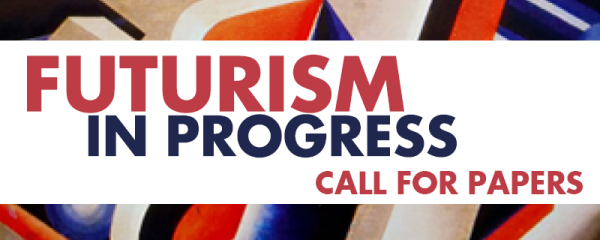
One-Day Symposium - Call for Papers
Tuesday 20 February 2024, 9.30 – 18.00
Estorick Collection of Modern Italian Art, London
Convenors:
- Roberta Cremoncini
- Christopher Adams
In attempting to situate Italian art at the forefront of the European avant-garde, F. T. Marinetti’s Futurist movement placed radical progress in art and life at the very heart of its agenda. Railing against cultural tradition, calling for the destruction of museums and libraries, and proclaiming the need to rethink prevailing socio-political conventions, Futurism quickly developed into an international phenomenon, attracting zealous adherents who issued manifestos addressing almost every sphere of human activity.
Futurism’s enthusiasm for the urban environment and the machine was a fundamental element of its aesthetic and ideological makeup. However, Umberto Boccioni – arguably the movement’s most significant artist – was sceptical about the artistic potential of photography and preferred to paint horses and the human figure rather than mechanised vehicles. Marinetti’s 1909 novel Mafarka the Futurist was set in a timeless civilisation rather than a modern metropolis, and Gerardo Dottori’s aeropaintings of the 1930s celebrated the bucolic charms of his native Umbria rather than the ‘geometric and mechanical splendour’ of the twentieth century.
In light of these apparent contradictions, how might we characterise the Futurist concept of ‘progress’, and to what extent are we able to take the movement’s much-vaunted ambition to erase the past at face value?
In our present moment, we might ask how closely Futurist ideas about modernity dovetail with our own. To what degree might we say that today’s world approximates a Futurist utopia? Which aspects of the movement’s theories have proved to be most prescient, and which less so? Is humanity still being ‘multiplied’ by the machine, or is it starting to be overshadowed by its own technological innovations? Might Futurism still serve as an example for young artists and thinkers or is it, too, now fatally outmoded – and ideologically compromised?
Futurism in Progress invites 250-word proposals for cross-disciplinary papers of 20 minutes taking the above themes as a starting point, exploring them in the context of disciplines including (but not limited to) art history, visual culture, literature, sociology and film studies.
Themes for investigation might include, but are not limited to:
- Futurist attitudes to the natural world
- ‘Progressive’ v ‘reactionary’ elements of Futurism’s socio-political philosophy
- Futurism and Feminism (specifically)
- AI and NFTs: the future of Futurism, or creative dead ends?
All proposals should be sent to symposium@estorickcollection.com by 26 November 2023
Click here to download the call for papers.
The Estorick’s world-renowned collection of Futurist masterpieces makes it the ideal setting for this symposium, organised to mark the anniversary of the founding of F. T. Marinetti’s iconoclastic movement. Futurism in Progress is the first of what we hope will be a series of symposia, bringing students, academics and artists together to explore and expand the field of Futurist studies. Futurism in Progress aims to foster inclusivity and diversity. We are especially concerned to encourage and enhance representation and participation from under-represented groups, and to develop an environment rooted in a belief of equal respect for all persons.